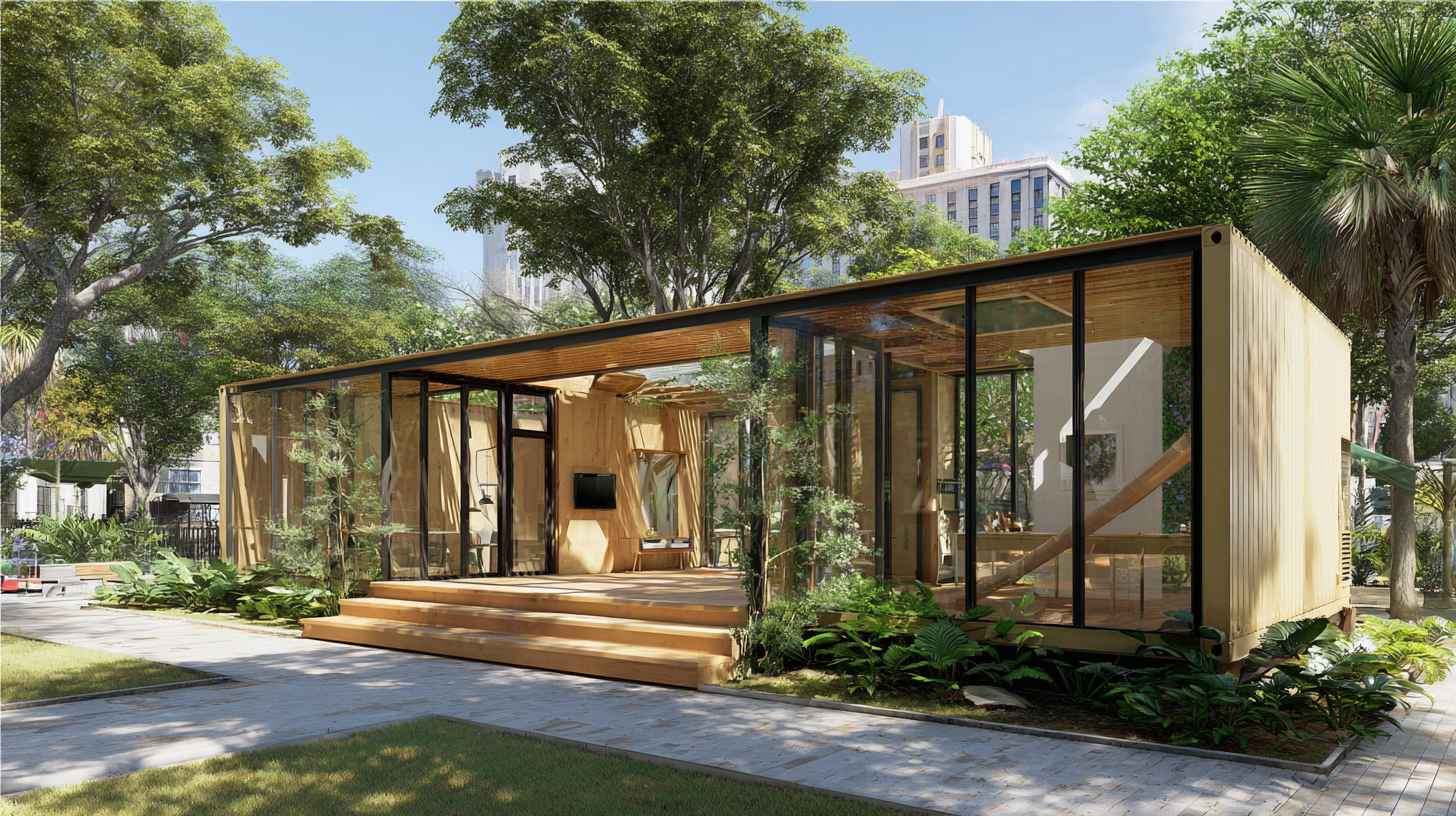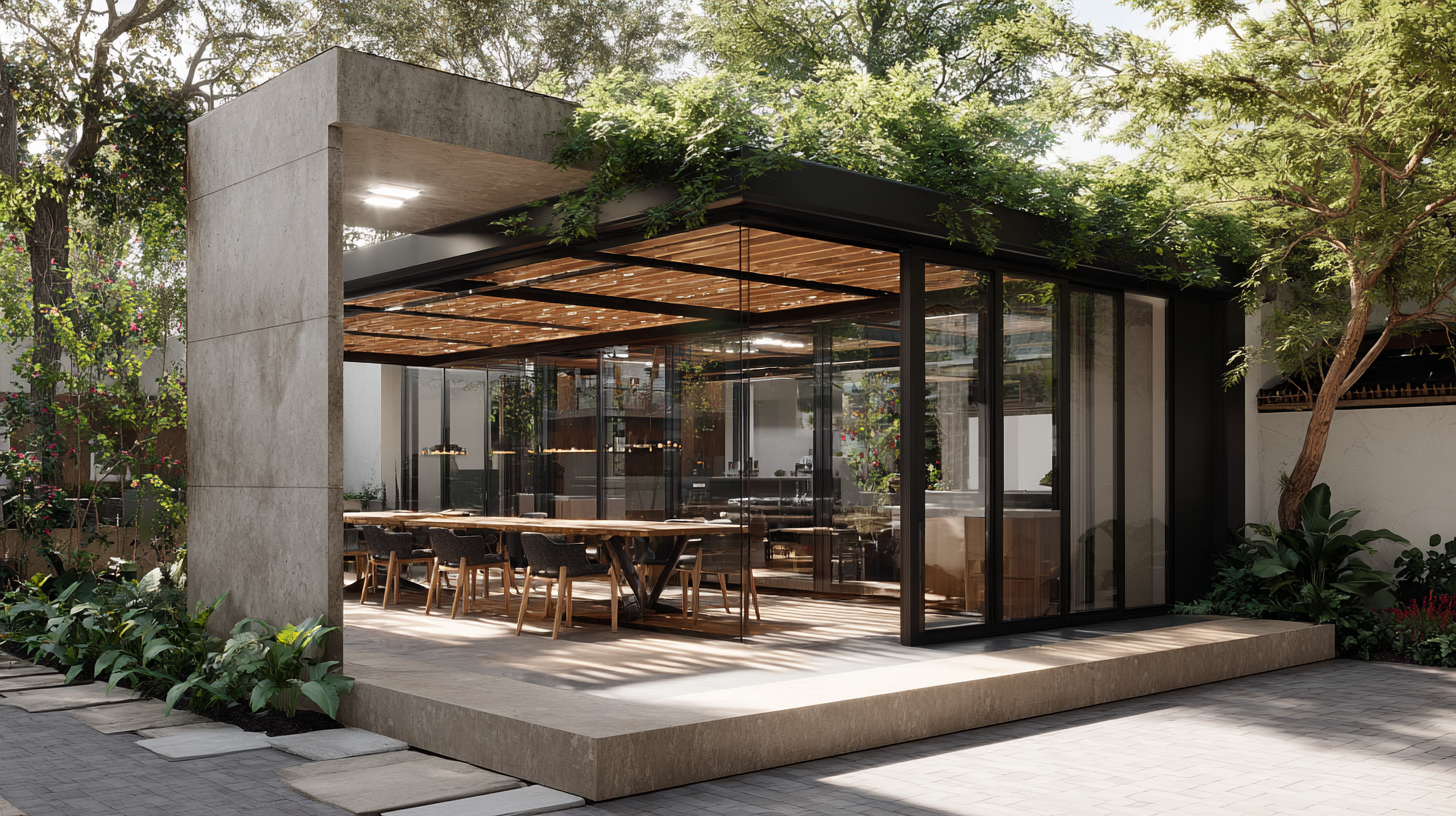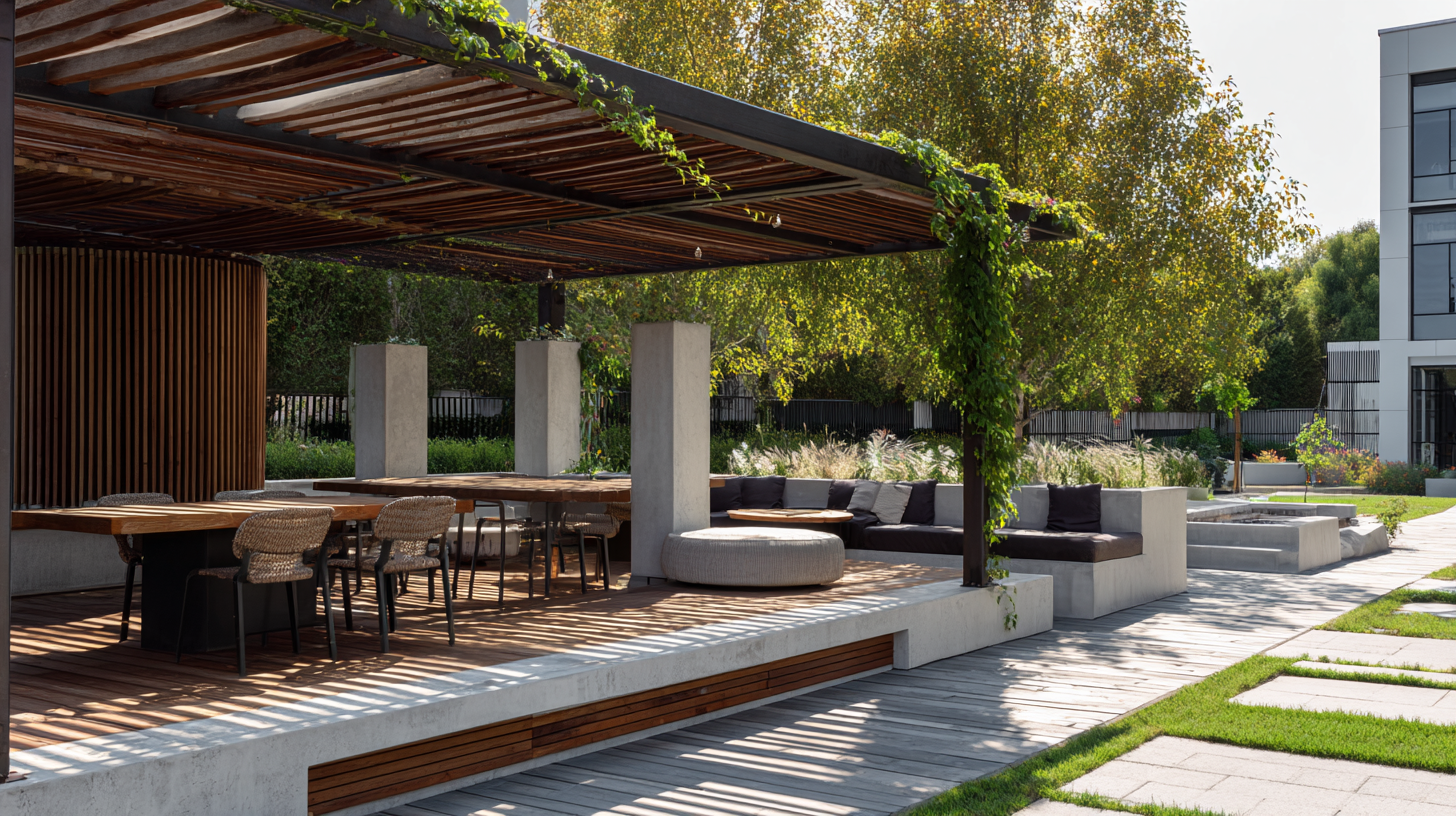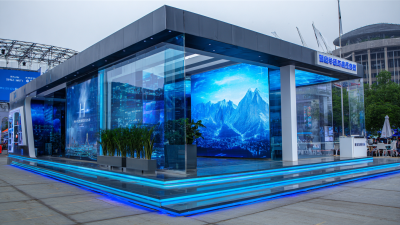 +86-13901441113
+86-13901441113




In recent years, the concept of modular outdoor spaces has gained significant traction, particularly highlighted by trends like "Slide Outside." This innovative approach taps into the growing demand for adaptable outdoor environments that enhance both functionality and aesthetics. According to a 2023 report by the Outdoor Space Association, nearly 65% of homeowners are prioritizing outdoor living areas in their renovation plans, reflecting a shift towards more integrated indoor-outdoor experiences.
Industry expert Dr. Emily Fisher, a leading voice in landscaping and design, emphasizes the importance of such spaces, stating, "Slide Outside creates a seamless transition that not only expands living areas but also enriches the experience of nature." By leveraging modular designs, outdoor spaces can be transformed effortlessly, catering to a variety of needs, from leisure to entertainment. This shift not only maximizes property value but also aligns with the modern desire for versatility, eco-friendliness, and enhanced quality of life. As we explore the benefits of "Slide Outside," it becomes evident that this movement is not just a trend but a pivotal element of contemporary living in 2023.

In 2023, the concept of modular outdoor spaces is gaining significant traction, fundamentally reshaping urban living. As urban areas become increasingly dense, the need for adaptable and multifunctional spaces has never been more pronounced. Modular designs allow residents to customize their outdoor environments, creating spaces that cater not only to aesthetic preferences but also to specific activities ranging from relaxation to social gatherings. This flexibility is particularly appealing in a fast-paced urban lifestyle where personal comfort and community engagement are highly valued.
The rise of modular outdoor spaces fosters a sense of community and connection among residents. By incorporating elements such as movable furniture, garden beds, and smart technology, neighborhoods can transform underutilized areas into vibrant hubs of interaction. These spaces encourage gatherings and collaborations, allowing individuals to bond over shared interests while enjoying nature. Additionally, the focus on sustainability in modular designs promotes eco-friendly practices, reinforcing the significance of green spaces in urban settings. This transformation is not just about making urban environments more livable; it's also about nurturing well-being and community spirit in a world where both are increasingly essential.
The demand for flexible outdoor solutions has surged in recent years, particularly as urban spaces evolve and homeowners seek ways to maximize their living areas. According to a report from the American Society of Landscape Architects, around 80% of homeowners are interested in enhancing their outdoor environments, emphasizing the increasing trend towards modular outdoor spaces. This shift not only reflects changing lifestyles but also highlights the growing recognition of outdoor spaces as extensions of the home.
Furthermore, a survey conducted by Statista revealed that approximately 55% of consumers prioritizing outdoor living areas expressed a desire for versatility in their designs. This flexibility allows for diverse usage—from entertaining guests to creating serene retreats for personal relaxation. Additionally, the market for outdoor furniture and accessories is projected to reach $20 billion by 2025, underlining the robust growth potential within this segment. As outdoor solutions become more modular, they offer both aesthetic appeal and practical benefits, setting a new standard for outdoor living in 2023.
Modular outdoor spaces have gained popularity in 2023 due to their innovative design and enhanced functionality. One of the primary benefits of modular design is its versatility. These spaces can be easily customized and reconfigured based on individual needs, making them perfect for various activities—from entertaining guests to relaxing alone. With interlocking components, homeowners can quickly adapt their outdoor areas, promoting a more dynamic lifestyle that aligns with changing seasons or personal preferences.
In addition to functionality, modular outdoor designs significantly elevate aesthetics. The clean lines and modern materials used in these structures allow them to seamlessly blend with any environment, creating visually pleasing landscapes. Homeowners can choose from a range of styles, colors, and finishes, enabling them to express their personal taste while enhancing property value. The thoughtful integration of nature and design in modular spaces not only improves the overall outdoor experience but also invites more time spent in these areas, making them vital extensions of the home.

As the trend towards more sustainable living continues to grow, modular outdoor spaces are becoming increasingly popular for their adaptability and eco-friendly benefits. In 2023, homeowners and designers are prioritizing the use of sustainable materials and practices when creating outdoor environments. This shift reflects a broader commitment to reducing environmental impact and enhancing the natural beauty of outdoor spaces.
Utilizing materials such as reclaimed wood, bamboo, and recycled composites not only minimizes waste but also adds unique character to outdoor designs. Additionally, eco-friendly practices, such as implementing efficient rainwater collection systems and utilizing solar energy for outdoor lighting, are becoming standard in modern landscaping. These approaches not only contribute to sustainability but also create spaces that are harmonious with nature, offering a tranquil escape that aligns with environmentally conscious values. The incorporation of these elements in modular outdoor spaces allows for versatile designs that can adapt to the changing seasons while reinforcing a commitment to environmental stewardship.
| Feature | Description | Benefits | Eco-friendly Materials | Sustainability Practices |
|---|---|---|---|---|
| Modular Design | Flexibility in layout and configuration. | Customizable to fit various outdoor activities. | Reclaimed wood, recycled metals. | Waste reduction through modular construction. |
| Sustainable Materials | Use of eco-friendly materials in construction. | Lower environmental impact and better health outcomes. | Bamboo, composite decking. | Energy-efficient building processes. |
| Community Engagement | Encourages social interactions within the community. | Promotes healthier social lifestyles. | Locally sourced materials. | Community-led sustainability initiatives. |
| Versatile Use | Can be used for dining, relaxation, or workspaces. | Maximizes functionality of outdoor spaces. | Recycled plastic, natural stone. | Regular maintenance for longevity and sustainability. |
Modular outdoor spaces, such as Slide Outside, are redefining cost efficiency in landscaping and property development. According to a report by Allied Market Research, the modular construction industry is projected to reach $157 billion by 2023, signaling a shift towards more sustainable building practices. These modular designs allow homeowners and businesses to create customizable outdoor environments without the hefty price tag typically associated with traditional construction methods. By using prefabricated elements, these spaces can be assembled quickly, reducing labor costs and construction waste significantly—up to 30% in some cases.

Tips for Maximizing Value in Modular Outdoor Spaces:
The emphasis on minimizing waste further enhances the appeal of modular designs. The installation of these outdoor spaces can often result in less excess material and debris, aligning with environmental sustainability goals. A study from the McKinsey Global Institute found that modular construction can cut greenhouse gas emissions by 20%, making these outdoor spaces not only economical but also an eco-friendly choice.





